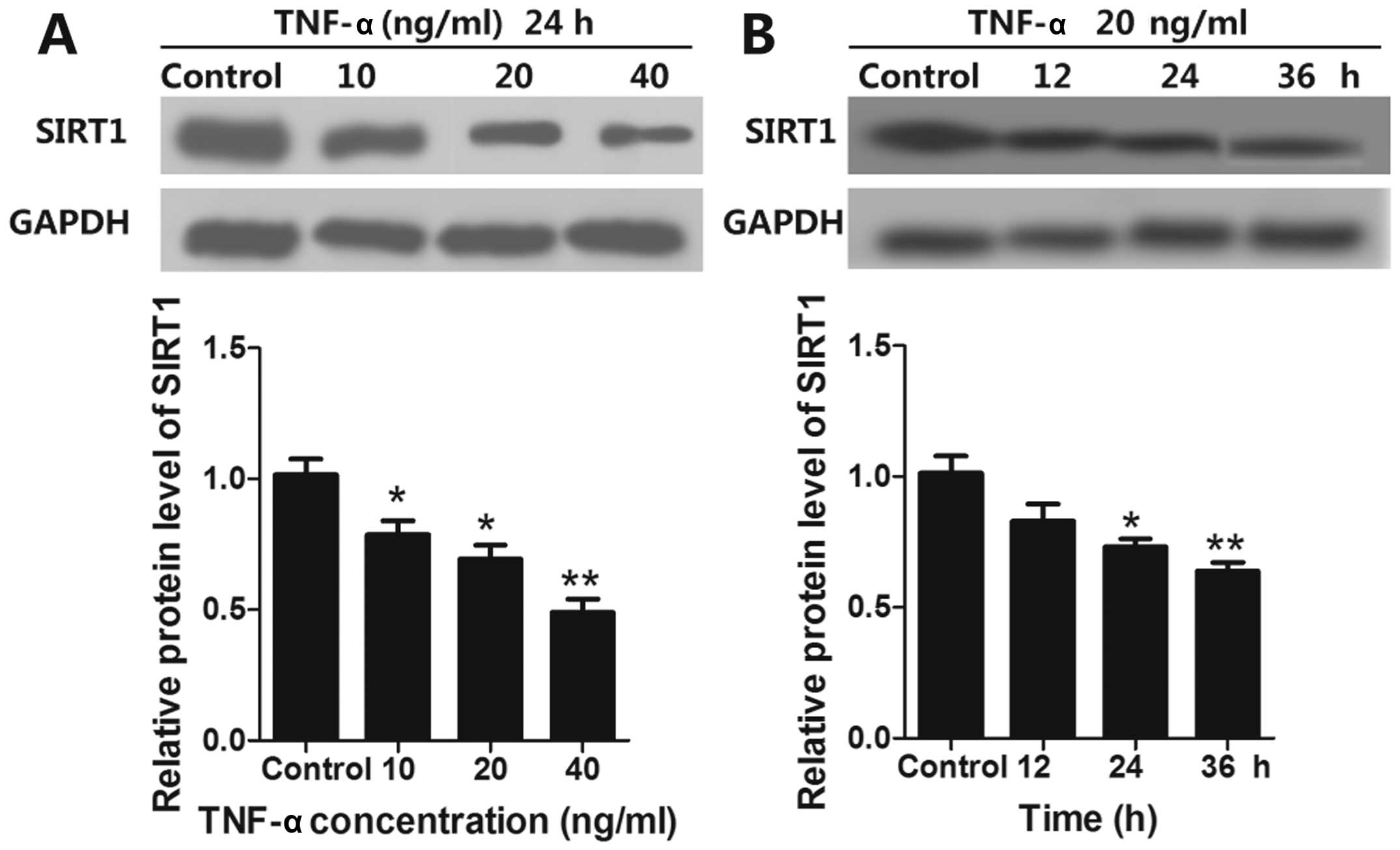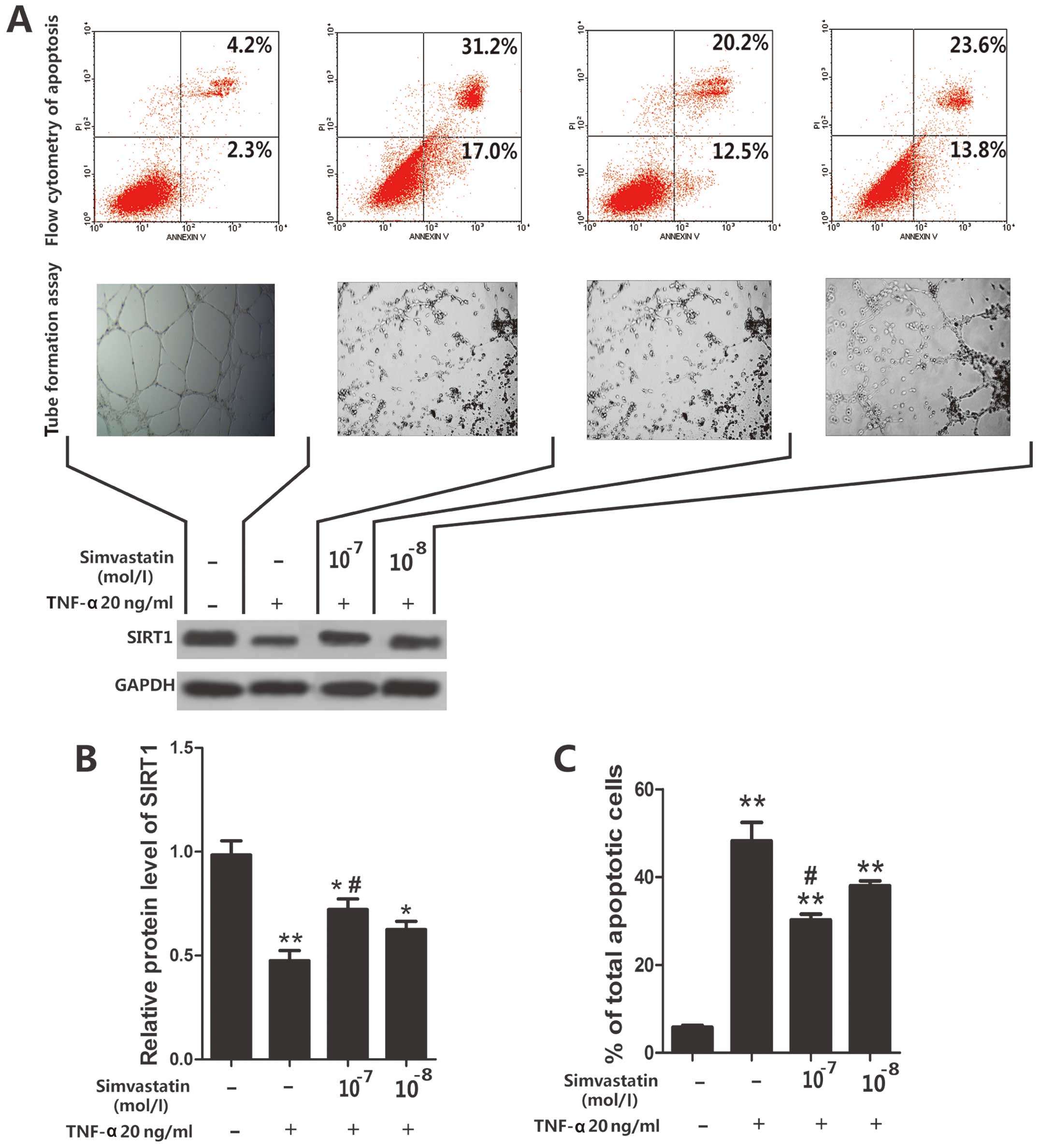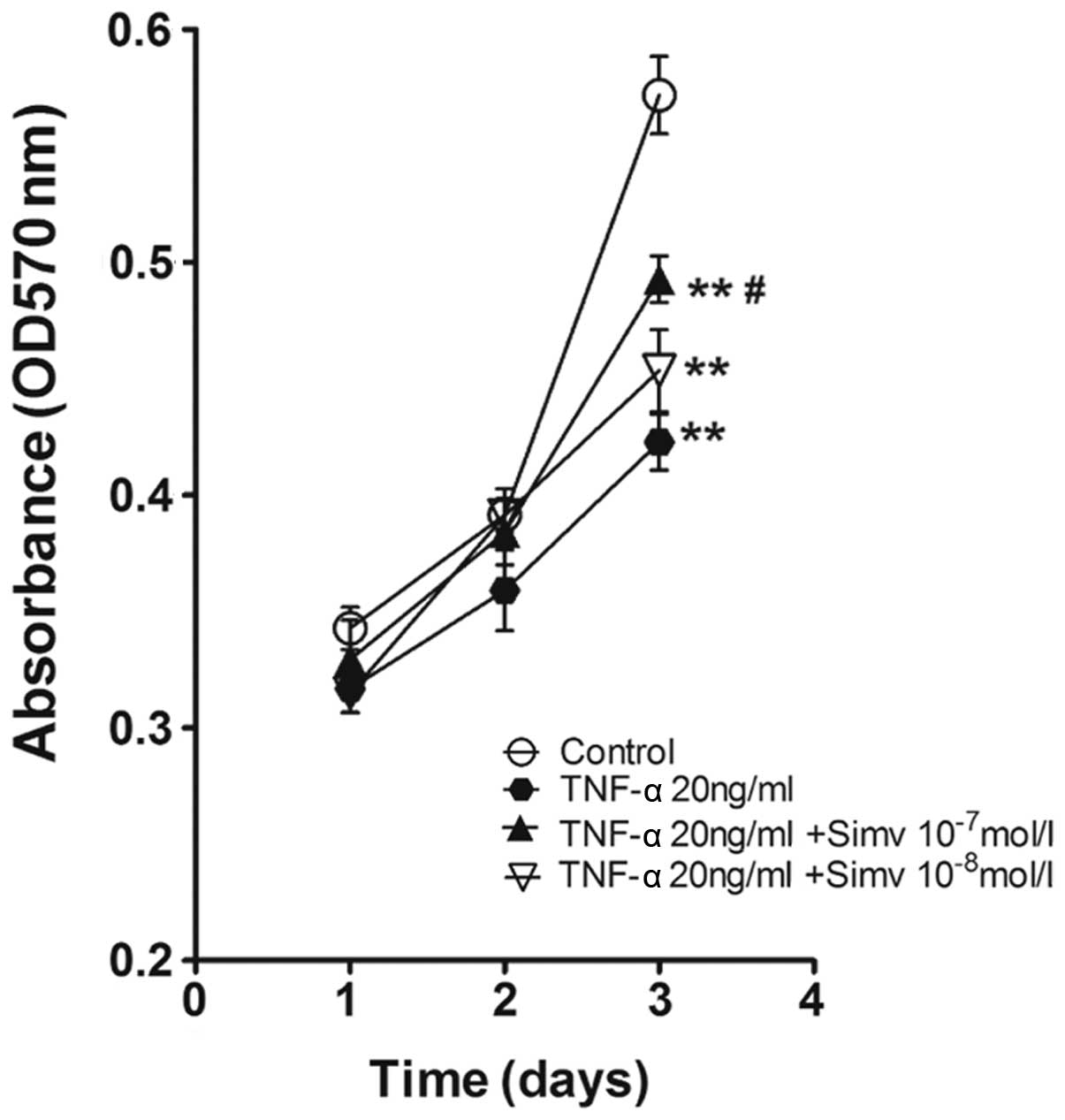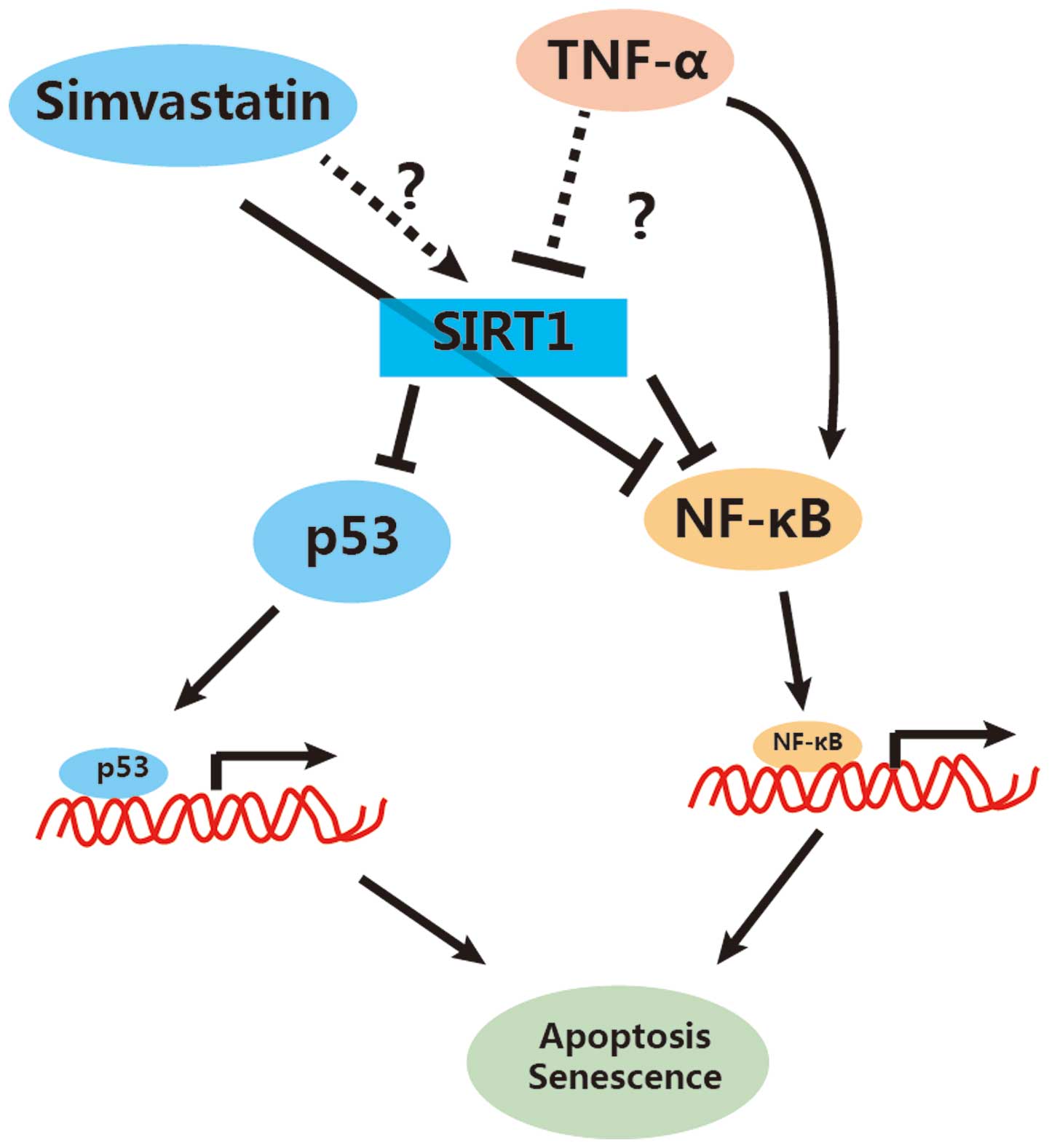|
1
|
Rouhl RP, van Oostenbrugge RJ, Damoiseaux
J, Tervaert JW and Lodder J: Endothelial progenitor cell research
in stroke: a potential shift in pathophysiological and
therapeutical concepts. Stroke. 39:2158–2165. 2008. View Article : Google Scholar : PubMed/NCBI
|
|
2
|
Decano JL, Moran AM, Giordano N,
Ruiz-Opazo N and Herrera VL: Analysis of CD45- [CD34+/KDR+]
endothelial progenitor cells as juvenile protective factors in a
rat model of ischemic-hemorrhagic stroke. PLoS One.
8:e552222013.
|
|
3
|
Huang H, Huang F and Huang JP:
Transplantation of bone marrow-derived endothelial progenitor cells
overexpressing Delta-like-4 enhances functional neovascularization
in ischemic myocardium. Mol Med Rep. 8:1556–1562. 2013.
|
|
4
|
Thal MA, Krishnamurthy P, Mackie AR, et
al: Enhanced angiogenic and cardiomyocyte differentiation capacity
of epigenetically reprogrammed mouse and human endothelial
progenitor cells augments their efficacy for ischemic myocardial
repair. Circ Res. 111:180–190. 2012. View Article : Google Scholar
|
|
5
|
Patschan D, Hildebrandt A, Rinneburger J,
et al: The hormone melatonin stimulates renoprotective effects of
‘early outgrowth’ endothelial progenitor cells in acute ischemic
kidney injury. Am J Physiol Renal Physiol. 302:F1305–F1312.
2012.PubMed/NCBI
|
|
6
|
Bouchentouf M, Forner K, Cuerquis J, et
al: A novel and simplified method of culture of human blood-derived
early endothelial progenitor cells for the treatment of ischemic
vascular disease. Cell Transplant. 20:1431–1443. 2011. View Article : Google Scholar : PubMed/NCBI
|
|
7
|
Głowińska-Olszewska B, Luczyński W and
Bossowski A: Endothelial progenitor cells as a new marker of
endothelial function with respect to risk of cardiovascular
disorders. Postepy Hig Med Dosw (Online). 65:8–15. 2011.(In
Polish).
|
|
8
|
Shantsila E, Watson T and Lip GY:
Endothelial progenitor cells in cardiovascular disorders. J Am Coll
Cardiol. 49:741–752. 2007. View Article : Google Scholar
|
|
9
|
Sun JY, Zhai L, Li QL, et al: Effects of
ACE inhibition on endothelial progenitor cell mobilization and
prognosis after acute myocardial infarction in type 2 diabetic
patients. Clinics (Sao Paulo). 68:665–673. 2013. View Article : Google Scholar : PubMed/NCBI
|
|
10
|
Sandri M, Beck EB, Adams V, et al: Maximal
exercise, limb ischemia, and endothelial progenitor cells. Eur J
Cardiovasc Prev Rehabil. 18:55–64. 2011.PubMed/NCBI
|
|
11
|
Aicher A, Heeschen C, Sasaki K, Urbich C,
Zeiher AM and Dimmeler S: Low-energy shock wave for enhancing
recruitment of endothelial progenitor cells: a new modality to
increase efficacy of cell therapy in chronic hind limb ischemia.
Circulation. 114:2823–2830. 2006. View Article : Google Scholar : PubMed/NCBI
|
|
12
|
Jiménez-Navarro MF, González FJ,
Caballero-Borrego J, et al: Coronary disease extension determines
mobilization of endothelial progenitor cells and cytokines after a
first myocardial infarction with ST elevation. Rev Esp Cardiol.
64:1123–1129. 2011.(In Spanish).
|
|
13
|
Bonello L, Harhouri K, Baumstarck K, et
al: Mobilization of CD34+ KDR+ endothelial progenitor cells
predicts target lesion revascularization. J Thromb Haemost.
10:1906–1913. 2012.
|
|
14
|
Kim JY, Park YJ, Kim KJ, Choi JJ, Kim WU
and Cho CS: Osteoprotegerin causes apoptosis of endothelial
progenitor cells by induction of oxidative stress. Arthritis Rheum.
65:2172–2182. 2013. View Article : Google Scholar : PubMed/NCBI
|
|
15
|
Chen J, Huang L, Song M, Yu S, Gao P and
Jing J: C-reactive protein upregulates receptor for advanced
glycation end products expression and alters antioxidant defenses
in rat endothelial progenitor cells. J Cardiovasc Pharmacol.
53:359–367. 2009. View Article : Google Scholar
|
|
16
|
Skoog T, Dichtl W, Boquist S, et al:
Plasma tumour necrosis factor-alpha and early carotid
atherosclerosis in healthy middle-aged men. Eur Heart J.
23:376–383. 2002. View Article : Google Scholar : PubMed/NCBI
|
|
17
|
Ruan W, Xu JM, Li SB, Yuan LQ and Dai RP:
Effects of down-regulation of microRNA-23a on TNF-α-induced
endothelial cell apoptosis through caspase-dependent pathways.
Cardiovasc Res. 93:623–632. 2012.PubMed/NCBI
|
|
18
|
Markelic M, Velickovic K, Golic I, et al:
Endothelial cell apoptosis in brown adipose tissue of rats induced
by hyperinsulinaemia: the possible role of TNF-α. Eur J Histochem.
55:e342011.PubMed/NCBI
|
|
19
|
Nystrom T, Nygren A and Sjoholm A:
Increased levels of tumour necrosis factor-alpha (TNF-alpha) in
patients with Type II diabetes mellitus after myocardial infarction
are related to endothelial dysfunction. Clin Sci (Lond).
110:673–681. 2006. View Article : Google Scholar
|
|
20
|
Speciale A, Canali R, Chirafisi J, Saija
A, Virgili F and Cimino F: Cyanidin-3-O-glucoside protection
against TNF-α-induced endothelial dysfunction: involvement of
nuclear factor-κB signaling. J Agric Food Chem. 58:12048–12054.
2010.
|
|
21
|
Henrich D, Seebach C, Wilhelm K and Marzi
I: High dosage of simvastatin reduces TNF-alpha-induced apoptosis
of endothelial progenitor cells but fails to prevent apoptosis
induced by IL-1beta in vitro. J Surg Res. 142:13–19. 2007.
View Article : Google Scholar : PubMed/NCBI
|
|
22
|
Seeger FH, Haendeler J, Walter DH, et al:
p38 mitogen-activated protein kinase downregulates endothelial
progenitor cells. Circulation. 111:1184–1191. 2005. View Article : Google Scholar : PubMed/NCBI
|
|
23
|
Ziedén B and Olsson AG: The role of
statins in the prevention of ischemic stroke. Curr Atheroscler Rep.
7:364–368. 2005.
|
|
24
|
Margaritis M, Channon KM and Antoniades C:
Statins as regulators of redox state in the vascular endothelium:
beyond lipid lowering. Antioxid Redox Signal. 20:1198–1215. 2014.
View Article : Google Scholar : PubMed/NCBI
|
|
25
|
Zhu Y, Casey PJ, Kumar AP and Pervaiz S:
Deciphering the signaling networks underlying simvastatin-induced
apoptosis in human cancer cells: evidence for non-canonical
activation of RhoA and Rac1 GTPases. Cell Death Dis. 4:e5682013.
View Article : Google Scholar
|
|
26
|
Piechota-Polanczyk A, Goraca A, Demyanets
S, et al: Simvastatin decreases free radicals formation in the
human abdominal aortic aneurysm wall via NF-κB. Eur J Vasc Endovasc
Surg. 44:133–137. 2012.
|
|
27
|
Fuhrmeister J, Tews M, Kromer A and
Moosmann B: Prooxidative toxicity and selenoprotein suppression by
cerivastatin in muscle cells. Toxicol Lett. 215:219–227. 2012.
View Article : Google Scholar : PubMed/NCBI
|
|
28
|
Hoffmann G, Breitenbücher F, Schuler M and
Ehrenhofer-Murray AE: A novel sirtuin 2 (SIRT2) inhibitor with
p53-dependent pro-apoptotic activity in non-small cell lung cancer.
J Biol Chem. 289:5208–5216. 2014. View Article : Google Scholar : PubMed/NCBI
|
|
29
|
Nihal M, Ahmad N and Wood GS: SIRT1 is
upregulated in cutaneous T-cell lymphoma and its inhibition induces
growth arrest and apoptosis. Cell Cycle. 13:632–640. 2014.
View Article : Google Scholar : PubMed/NCBI
|
|
30
|
Hori YS, Kuno A, Hosoda R and Horio Y:
Regulation of FOXOs and p53 by SIRT1 modulators under oxidative
stress. PLoS One. 8:e738752013. View Article : Google Scholar : PubMed/NCBI
|
|
31
|
Kim S, Bi X, Czarny-Ratajczak M, et al:
Telomere maintenance genes SIRT1 and XRCC6 impact age-related
decline in telomere length but only SIRT1 is associated with human
longevity. Biogerontology. 13:119–131. 2012. View Article : Google Scholar : PubMed/NCBI
|
|
32
|
Kok SH, Lin LD, Hou KL, et al: Simvastatin
inhibits cysteine-rich protein 61 expression in rheumatoid
arthritis synovial fibroblasts through the regulation of
sirtuin-1/FoxO3a signaling. Arthritis Rheum. 65:639–649. 2013.
View Article : Google Scholar : PubMed/NCBI
|
|
33
|
Ota H, Eto M, Kano MR, et al: Induction of
endothelial nitric oxide synthase, SIRT1, and catalase by statins
inhibits endothelial senescence through the Akt pathway.
Arterioscler Thromb Vasc Biol. 30:2205–2211. 2010. View Article : Google Scholar : PubMed/NCBI
|
|
34
|
Dimitrova KR and Leitman IM:
Intramyocardial transplantation of endothelial progenitor cells and
erythropoietin: a new scope for the treatment of cardiovascular
disease. J Surg Res. 183:550–552. 2013. View Article : Google Scholar : PubMed/NCBI
|
|
35
|
Hu CH, Ke X, Chen K, Yang DY, Du ZM and Wu
GF: Transplantation of human umbilical cord-derived endothelial
progenitor cells promotes re-endothelialization of the injured
carotid artery after balloon injury in New Zealand white rabbits.
Chin Med J (Engl). 126:1480–1485. 2013.
|
|
36
|
Liu P, Zhou B, Gu D, Zhang L and Han Z:
Endothelial progenitor cell therapy in atherosclerosis: a
double-edged sword? Ageing Res Rev. 8:83–93. 2009. View Article : Google Scholar : PubMed/NCBI
|
|
37
|
Du G, Zhou L, Ghang Q and Li Z: Inhibitory
effect of simvastatin on replicative senescence of endothelial
progenitor cells and its mechanism. J Jilin Univ (Medicine
Edition). 39:913–918. 2013.
|
|
38
|
Thum T, Fraccarollo D, Galuppo P, et al:
Bone marrow molecular alterations after myocardial infarction:
impact on endothelial progenitor cells. Cardiovasc Res. 70:50–60.
2006. View Article : Google Scholar : PubMed/NCBI
|
|
39
|
Tousoulis D, Oikonomou E, Siasos G and
Stefanadis C: Statins in heart failure - with preserved and reduced
ejection fraction. An update Pharmacol Ther. 141:79–91. 2014.
View Article : Google Scholar : PubMed/NCBI
|
|
40
|
Balakumar P, Kathuria S, Taneja G, Kalra S
and Mahadevan N: Is targeting eNOS a key mechanistic insight of
cardiovascular defensive potentials of statins? J Mol Cell Cardiol.
52:83–92. 2012. View Article : Google Scholar : PubMed/NCBI
|
|
41
|
Xu S, Zhao Y, Yu L, Shen X, Ding F and Fu
G: Rosiglitazone attenuates endothelial progenitor cell apoptosis
induced by TNF-α via ERK/MAPK and NF-κB signal pathways. J
Pharmacol Sci. 117:265–274. 2011.PubMed/NCBI
|
|
42
|
Yuan H, Wang Z, Li L, et al: Activation of
stress response gene SIRT1 by BCR-ABL promotes leukemogenesis.
Blood. 119:1904–1914. 2012. View Article : Google Scholar : PubMed/NCBI
|
|
43
|
Huang PS, Son JH, Abbott LC and
Winzer-Serhan UH: Regulated expression of neuronal SIRT1 and
related genes by aging and neuronal β2-containing nicotinic
cholinergic receptors. Neuroscience. 196:189–202. 2011.PubMed/NCBI
|
|
44
|
Jeong J, Juhn K, Lee H, et al: SIRT1
promotes DNA repair activity and deacetylation of Ku70. Exp Mol
Med. 39:8–13. 2007. View Article : Google Scholar : PubMed/NCBI
|
|
45
|
Jin Q, Yan T, Ge X, Sun C, Shi X and Zhai
Q: Cytoplasm-localized SIRT1 enhances apoptosis. J Cell Physiol.
213:88–97. 2007. View Article : Google Scholar : PubMed/NCBI
|
|
46
|
Kacimi R, Karliner JS, Koudssi F and Long
CS: Expression and regulation of adhesion molecules in cardiac
cells by cytokines: response to acute hypoxia. Circ Res.
82:576–586. 1998. View Article : Google Scholar : PubMed/NCBI
|
|
47
|
Wang W, Yan C, Zhang J, et al: SIRT1
inhibits TNF-α-induced apoptosis of vascular adventitial
fibroblasts partly through the deacetylation of FoxO1. Apoptosis.
18:689–701. 2013.
|
|
48
|
Dvir-Ginzberg M, Gagarina V, Lee EJ, Booth
R, Gabay O and Hall DJ: Tumor necrosis factor α-mediated cleavage
and inactivation of SirT1 in human osteoarthritic chondrocytes.
Arthritis Rheum. 63:2363–2373. 2011.
|
|
49
|
Zhang HN, Li L, Gao P, et al: Involvement
of the p65/RelA subunit of NF-kappaB in TNF-alpha-induced SIRT1
expression in vascular smooth muscle cells. Biochem Biophys Res
Commun. 397:569–575. 2010. View Article : Google Scholar : PubMed/NCBI
|
|
50
|
Yang J, Huang C, Yang J, Jiang H and Ding
J: Statins attenuate high mobility group box-1 protein induced
vascular endothelial activation: a key role for TLR4/NF-κB
signaling pathway. Mol Cell Biochem. 345:189–195. 2010.PubMed/NCBI
|
|
51
|
Ahn KS, Sethi G and Aggarwal BB: Reversal
of chemoresistance and enhancement of apoptosis by statins through
downregulation of the NF-κB pathway. Biochem Pharmacol. 75:907–913.
2008.PubMed/NCBI
|


















